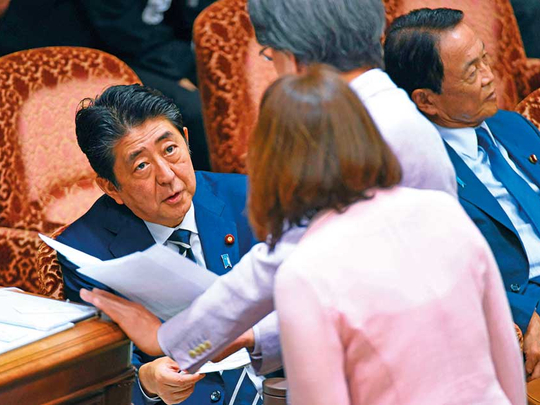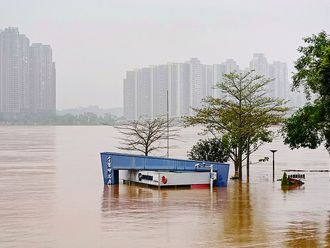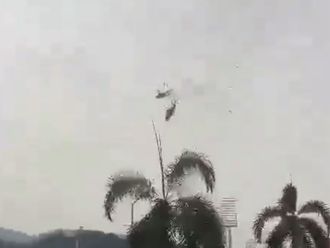
Tokyo: Japanese Prime Minister Shinzo Abe on Tuesday revised when he first knew about a friend’s application to open a veterinary school at the centre of a suspected cronyism scandal, saying he only became aware of the plan after it was approved.
Abe, whose ratings have plunged below 30 per cent in some polls over the issue, earlier said he knew about his friend’s school when the application was lodged — 10 days earlier.
Abe has denied intervening to help Kake Gakuen, an educational institution whose director Kotaro Kake is a long-time friend, win approval for the school in a special economic zone.
Imabari City had previously applied unsuccessfully 15 times for approval to host a veterinary school before winning approval this year — the first such approval in more than 50 years.
Grilled for a second day in a parliamentary panel, Abe reiterated he had not done any favours for Kake Gakuen, nor had his friend sought to use their ties to get special treatment.
But questioned by Democratic Party leader Renho, who goes by one name, Abe said his previous remarks about when he knew Kake Gakuen was the operator seeking approval for a new veterinary school in Imabari City, western Japan, were mistaken.
Instead of finding out when the application was submitted, as he told parliament in June, Abe said he had only found out 10 days later on Jan. 20, when the application was approved.
“It was a sudden question and I had not sorted it out sufficiently,” Abe said. “After sorting it out, I must apologise for confusing Imabari City and Kake Gakuen a bit.” Democratic Party leader Renho asked: “What should we believe?” “Once a contradiction is pointed out in parliamentary deliberation, you say, ‘That was not accurate then, but let me say it correctly now’. That is a very insincere response.” While Abe’s Liberal Democratic Party (LDP) has seen its support slip over the scandal, falling two points to 25 per cent in a Mainichi newspaper poll published on Monday, Renho’s Democratic Party has not been able to capitalise.
Although a Democratic Party-backed candidate won an election on Sunday for mayor of the northeastern city of Sendai, the Mainichi poll put support for the opposition party at a mere 5 per cent, down three points from the previous month.
A weak opposition has been a key factor in the longevity of Abe’s 4-1/2-year-old government but the ratings drop could encourage rivals to challenge him in a party leadership race next year, dimming his chances to become Japan’s longest-serving premier.












